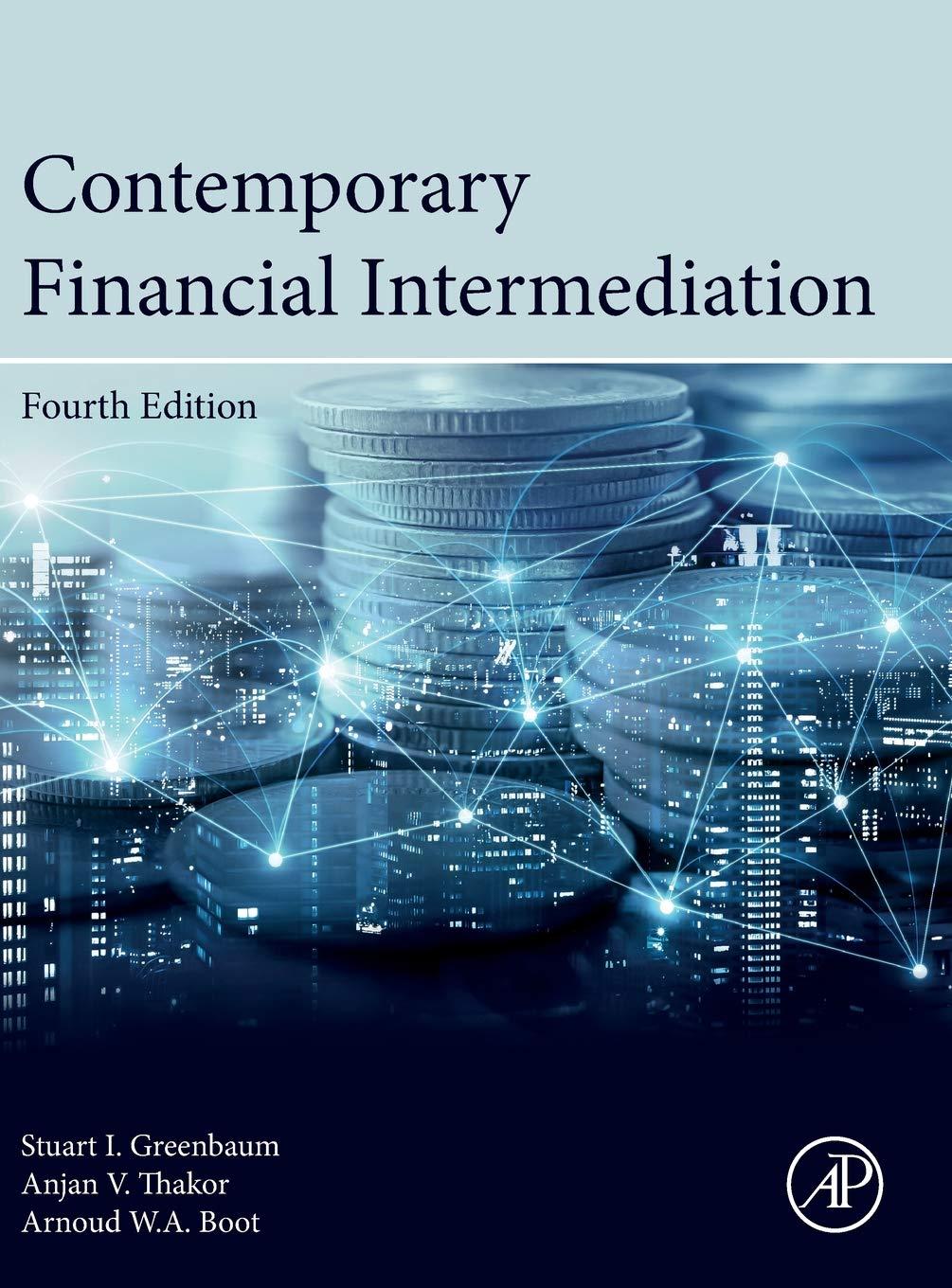Suppose a borrower knows at t = 0 that it will have available at t = 1
Question:
Suppose a borrower knows at t = 0 that it will have available at t = 1 an opportunity to invest $175 in a risky project that will pay off at t = 2. The borrower knows that it will be able to invest in one of two mutually exclusive projects, S or R, each requiring a $175 investment. If the borrower invests in S at t = 1, the project will yield a gross payoff of $310 with probability 0.8 and zero with probability 0.2 at t = 2. If the borrower invests in R at t = 1, the project will yield a gross payoff of $330 with probability 0.6 and zero with probability 0.4 at t = 2. The borrower’s project choice is not observable to the bank. The riskless, single-period interest rate at t = 0 is 12%. It is not known at t = 0 what the riskless, single-period interest rate at t = 1 will be, but it is common knowledge that this rate will be 8 percent (with probability 0.6) or 15% (with probability 0.4). Assume universal risk neutrality and that the borrower has no assets other than the project on which you (as the lender) can have any claim. Suppose you are this borrower’s banker and both you and the borrower recognize that this borrower has two choices:
(i) it can either do nothing at t = 0 and simply plan to borrow in the spot market at the interest rate prevailing for it at t = 1, or
(ii) it can negotiate at t = 0 with you (or some other bank) for a loan commitment that will permit it to borrow at predetermined terms at t = 1. What advice should you give this borrower? Assume a competitive loan market in which each bank is constrained to earn zero expected profit.
Step by Step Answer:

Contemporary Financial Intermediation
ISBN: 9780124052086
4th Edition
Authors: Stuart I. Greenbaum, Anjan V. Thakor, Arnoud Boot





